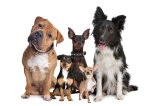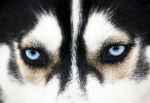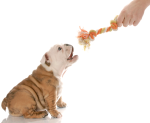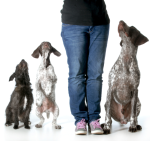
Dog bites hurt! Even when they don’t break skin, the mere pressure of the canine jaws is enough to inflict serious pain. Many of us have experienced at least one traumatic chomp. The speed and brutality of the act often…

Dog bites hurt! Even when they don’t break skin, the mere pressure of the canine jaws is enough to inflict serious pain. Many of us have experienced at least one traumatic chomp. The speed and brutality of the act often…

It’s hard to enjoy a walk in the park, when we know our beloved companion can suddenly turn into Cujo at the first sight of a strange dog or a jogger. Not only do we have to face the challenge…

When I first started to study dogs from a scientific perspective, finding research on canine behavior was a long and difficult task. It wasn’t just because at the time we didn’t have Internet and most of the publications had to…

Through interactions with the world, animals learn that certain actions lead to pleasant or unpleasant consequences. Most of our training theory revolves around our ability to manipulate the animals’ environment to reinforce certain behaviors rather than others. However, not all…

If there is one subject that has been beat to death in the dog world, it’s certainly the notion of pack hierarchy in dogs! For the longest time everything was about leadership. Most dog behavior problems were interpreted as a…

When we compare the lives of wild animals to that of our pets, there is a striking difference in their activity levels. Dogs, cats, birds, hamsters and gerbils of all sorts, spend a large part of their days just lying…

When we’re unsure about a novel situation, our first response is to look around and check how others are reacting. This behavior is easy to spot when watching hidden camera TV shows where a person faced with an ambiguous situation…